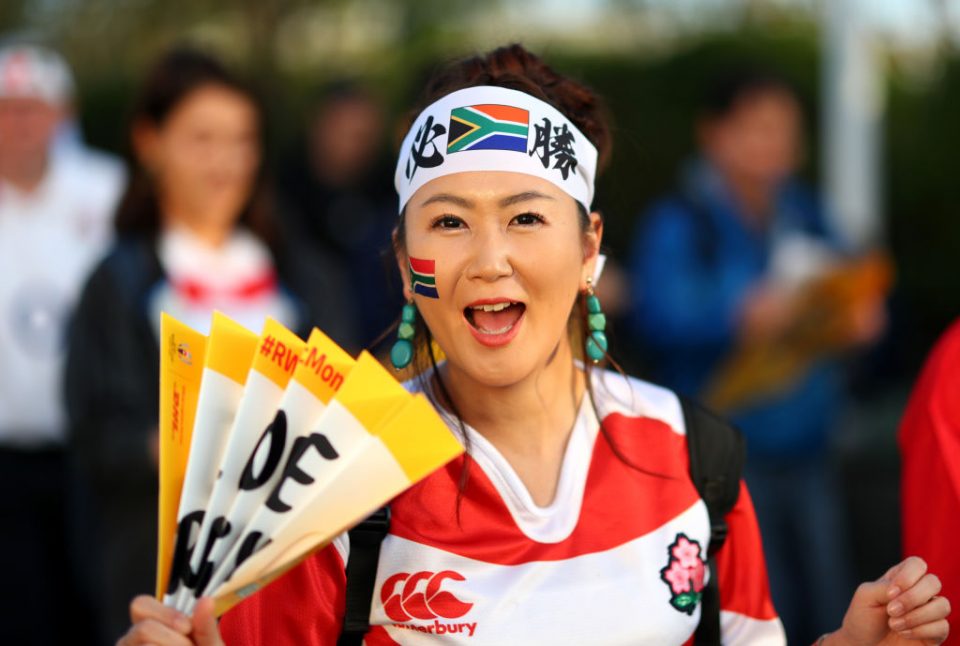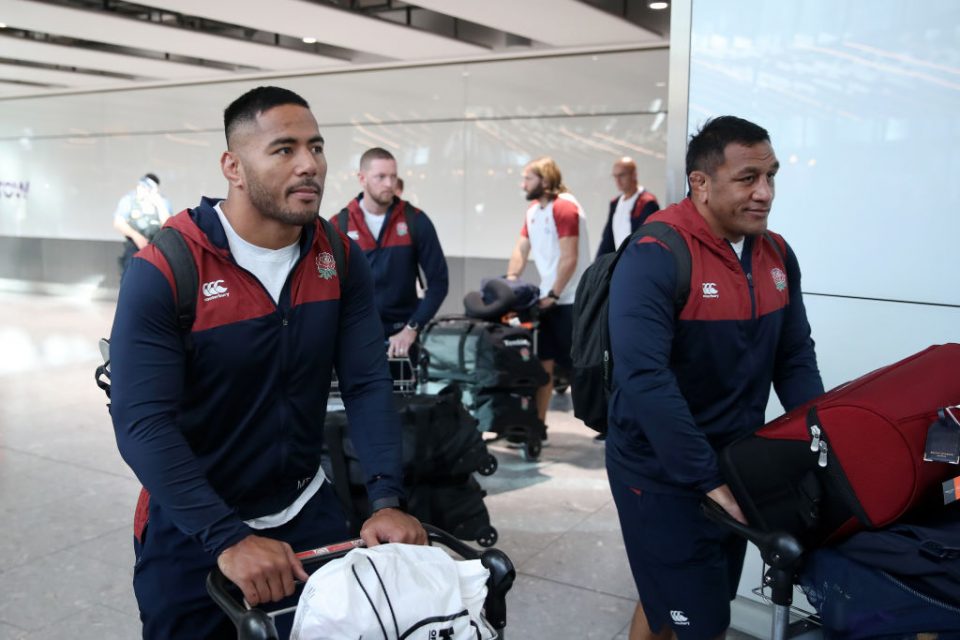Rugby World Cup: Why the legacy of Japan’s tournament will live on

The Rugby World Cup may have ended without the ultimate prize for England last weekend but the tournament itself created winners beyond those in the triumphant South Africa camp.
The decision to choose Japan as host nation, ahead of bids from Italy and the eventual winners, appeared bold back in 2009. With the benefit of hindsight, it now seems inspired.
Asia’s first Rugby World Cup overcame fears over the sport’s domestic popularity and the devastation caused by Typhoon Hagibis to deliver what World Rugby chairman Sir Bill Beaumont described as “probably the greatest World Cup”.
Here City A.M. speaks to industry experts to assess its impact and legacy.
Globalisation of rugby
“Did the gamble of taking the Rugby World Cup to Asia pay off? It’s hard to argue with 60m Japanese tuning in to watch the host’s games, 400,000 people from across the globe travelling to Japan and stadiums which were full from start to finish,” says Matthew Fletcher-Jones, director of communications at marketing agency Engine Sport.
Read more: Why England should keep Eddie Jones on until the 2023 World Cup
The headline statistics are certainly impressive, with World Rugby boasting a record 99.3 per cent attendance at grounds across the 48 matches, 1.8m tickets sold, 1.1m people visiting fanzones and more than 1.7bn video views.
The organisers’ operational profit is expected to be a record £165m, exceeding the £150m generated in England four years ago, while the economic impact for the hosts valued at ¥437bn (£3.1bn).
However, it’s what Japan’s bid committee chairman Nobby Mashimo promised back in 2009 – the “globalisation of rugby” – that truly stands out.
“We saw a nation captivated by both their own and newly adopted teams, all the games being played in the right spirit in grounds steeped in culture and history, a new audience immersed with a game that has long been the sport of the commonwealth,” says Chris Gratton, head of sports and entertainment at communications agency FleishmanHillard Fishburn.

Rugby has traditionally been a niche pastime in Japan, behind baseball, sumo wrestling, football, golf and tennis in terms of popularity and established only in elite schools and universities.
But the sight of the Brave Blossoms on the front of newspapers, bars and fanzones packed with a diverse range of people watching games, and queues for buying increasingly scarce replica shirts illustrated the World Cup’s impact.
“Commercially, the sport and sponsors will be very aware that a country of 128m and one of the world’s leading economies has just fallen in love with rugby union, and I expect things to move pretty fast,” says Fletcher-Jones.
“Right now anything is possible. Japan could be welcomed into the Rugby Championship, European nations may choose to regularly tour in Asia and, who knows, what price a future British and Irish Lions tour to Japan?”
Where next?
Focus now turns to the next World Cup in France in four years’ time, but Japan’s hosting success may have other knock-on effects.
The process for deciding who stages the 2027 and 2031 tournaments will begin in November 2020, with the United States previously expressing an interest and Argentina and Russia also suggesting they will enter the race.
“Japan 2019 has expanded rugby union’s horizons and could lead to a new era for the sport, with thinking beyond the wants and needs of just the Tier One nations,” says Fletcher-Jones.

“I think it’s inevitable that we’ll soon be seeing the tournament head to the Americas. I expect the USA to be announced as a host nation soon and would love to see Canada and Argentina getting to host games too.”
Gratton agrees. “Argentina are probably the most ‘ready’ in terms of an established market,” he adds. “But USA and Russia certainly have the infrastructure and professional base to use a World Cup as the final springboard to establish rugby within their modern sporting landscape in a similar way to Japan this year.”
Wider picture
Although England came up short, their run to the final engaged the nation, with ITV recording a peak audience of 12.8m for Saturday’s final against the Springboks, making it the most-watched sports programme on any British channel since the 2018 football World Cup.
“Despite of the early morning kick-off times, viewing figures have boomed in the UK and that has got to be good news for participation,” says Fletcher-Jones.
“The home nations need to capitalise on the current feel-good factor and look to bring new audiences to the sport as the World Cup showcased everything good about rugby on and off the pitch.”
While both Fletcher-Jones and Gratton highlight concerns about the physical nature of rugby potentially hampering a surge in grassroots and junior participation, commercial opportunities remain.
“Commercially it remains a great property in which to activate,” says Gratton. “It is a sport with true heritage and no shortage of storytelling moments and activation opportunities, but unless the sport in general evolves there is a real chance that it may be close to peaking commercially.
“World Rugby has a real challenge balancing new markets and established ones when it comes to scheduling and tiering, and moreso distribution of wealth.”
Japan wasn’t successful merely as a host. The Brave Blossoms beat Ireland and Scotland to top their group before bowing out to South Africa in the quarter-finals.

Beaumont promised World Rugby “will do everything in our power to support them, and all emerging teams, in getting regular access to high level competitions” and Gratton believes they have a case to be viewed as a Tier One nation.
“I expect the domestic game in England to be shaken up significantly in the coming seasons, but it’s the international scene where there’s a real opportunity,” adds Fletcher-Jones.
“The autumn internationals may start to welcome different opponents and possibly embrace different formats, while sponsors will be knocking on the doors of an England team made up of a new generation of young, humble stars.”
Japan’s World Cup is over, but it seems its legacy will endure, helping emerging rugby nations gain a foothold in the sport.
Main image credit: Getty Images